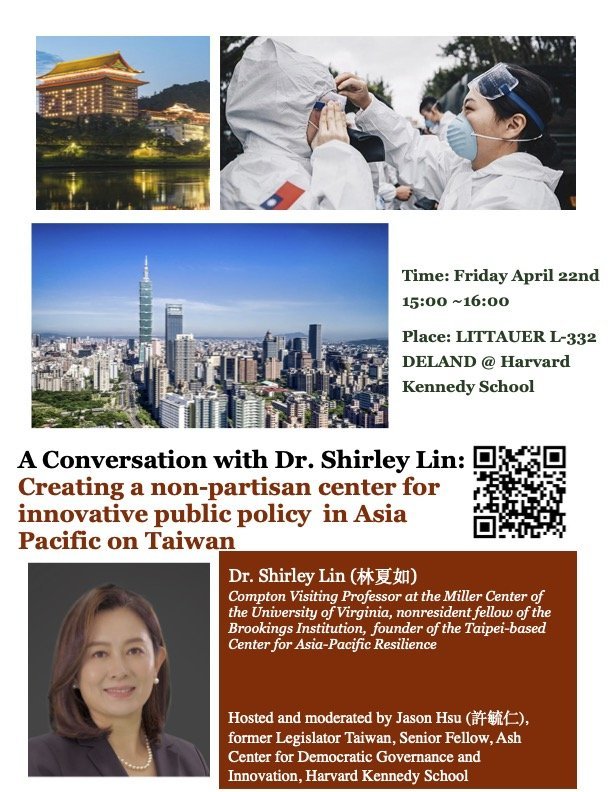Creating a non-partisan center for innovative public policy in Asia Pacific on Taiwan
Many societies, including those in the Asia Pacific, face a daunting set of challenges, both expected and unexpected. From the continued socioeconomic effects of the 2008 global financial crisis and the ongoing climate emergency to the unprecedented crisis caused by the COVID-19 pandemic and the war in Ukraine, leaders and decision makers are realizing that public health, environmental sustainability, and economic development are interconnected and heavily influenced by today's geopolitical competition. Of particular interest are the challenges facing Asian societies in the high-income trap, since those challenges are similar to those facing the United States and other advanced economies.
Since the pandemic emerged in 2020, the Asia Pacific has been one of the most successful regions in achieving health and economic resilience, and Taiwan has been particularly outstanding. Despite such success, Taiwan has not had a role in global or regional governance, and there are hardly any non-partisan think tanks in Taiwan which reflects a broader gap across the Asia Pacific. The ongoing recent Ukraine crisis further accentuates the need for Taiwan to become more resilient as a society in facing external threats and in improving domestic governance.
About Dr. Shirley Lin
Syaru Shirley Lin, Compton Visiting Professor at the Miller Center of the University of Virginia and a nonresident fellow of the Brookings Institution, is founder of the Taipei-based Center for Asia-Pacific Resilience and Innovation (CAPRI) whose mission is to address those challenges from a rigorous and comparative perspective. At present, CAPRI is the Asia-Pacific hub of the international Reform for Resilience Commission and is developing policy recommendations on the reforms needed to strengthen health and economic resilience, revitalize global commerce, and promote environmental sustainability around the world through lessons learned from Asia Pacific. She will address the challenges of funding, registration, and staffing facing social entrepreneurs seeking to establish new policy research organizations in societies that have little experience in housing them. Shirley is an international political economist and author of Taiwan's China Dilemma who has had a career in finance and venture capital previously. She also founded Harvard Taiwanese Cultural Society in 1987.
